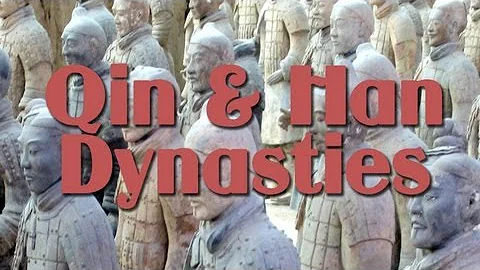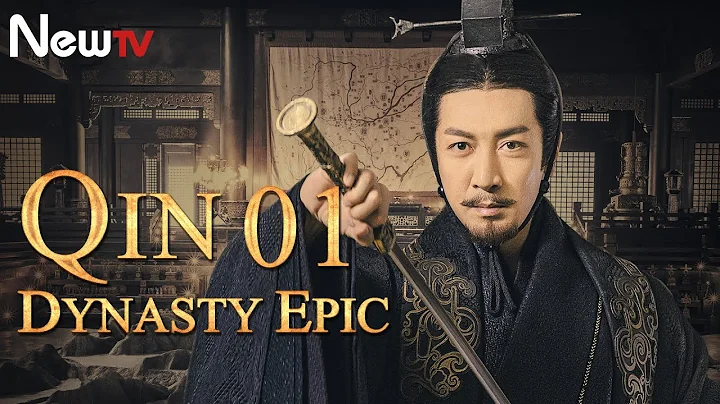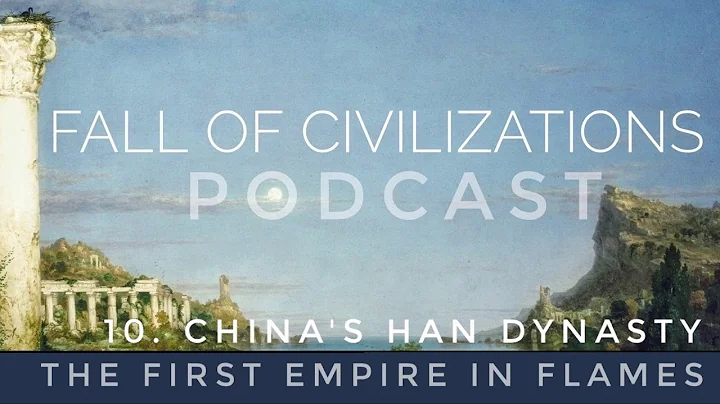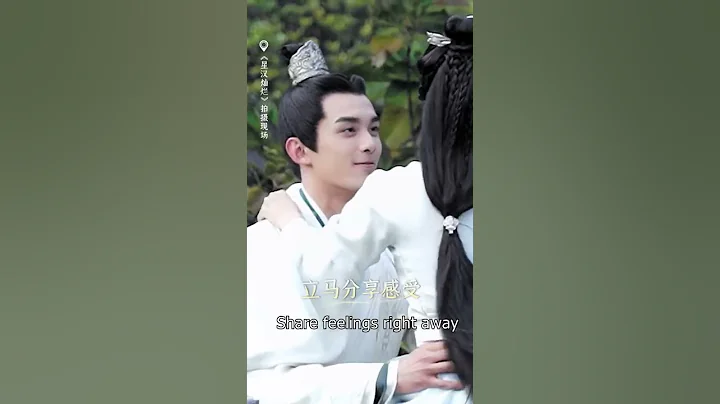"Cherish the martial arts of the Qin Emperor and the Han Dynasty, slightly less literary talent; the Tang Zongzong and Song Zu, slightly less elegant. A generation of genius, Genghis Khan , only knows how to bend a bow and shoot big eagles."
In this sentence, Chairman Mao expressed his feelings towards the ancient Chinese emperors Several very famous emperors made unique comments. In fact, in addition to the above emperors, Chairman Mao also made a lot of comments on other emperors in history. Today we will pick an emperor that Chairman Mao liked very much and see what Chairman Mao said about him.

Chairman Mao fell in love with reading history since he left Shaoshan and came to Changsha. I read the Twenty-Four Histories every day, and I especially like to read the Chronicles of the Emperors in it, absorbing experiences and lessons from the ancient emperors’ governance of the country. However, most emperors were relatively mediocre, and only a handful of founding and resurgence emperors made achievements.
Among these emperors, Chairman Mao admired none more than Zhu Yuanzhang, the founding emperor of the Ming Dynasty . This has a lot to do with Zhu Yuanzhang's peasant background. Chairman Mao, who also came from a peasant family, followed a very similar path to Zhu Yuanzhang. After facing the oppression and injustice of the times, the two rose up to resist and embarked on the road of revolution. After having such a strong sense of identification, Chairman Mao naturally had different feelings for Zhu Yuanzhang.

"History of the Ming Dynasty" is the last of the Twenty-Four Official Histories, and it is also the history book that has been compiled for the longest time. Its content and writing style are both excellent, and it is deeply loved by history readers. Chairman Mao is certainly no exception. Among the Twenty-Four Histories, "History of the Ming Dynasty" is the one in which he left the most notes, made the most comments, and gained the most insights.
Chairman Mao once said in a conversation:
"I was the most angry after reading "History of the Ming Dynasty". Except for the two illiterate emperors Zhu Yuanzhang and Zhu Di, the Ming Dynasty did better, and Ming Wuzong and Ming Yingzong did slightly better. Except for that, everything else is bad and all bad things are done. "
This sentence can be regarded as Chairman Mao's overall impression and basic evaluation of Ming history. The comments about Zhu Yuanzhang are the best. After Wu Han, a famous researcher on Ming history, wrote "The Biography of Zhu Yuanzhang", he gave it to Chairman Mao for advice. Chairman Mao expressed basic satisfaction with Wu Han's "The Biography of Zhu Yuanzhang" and gave a sentence of criticism
"Zhu Yuanzhang was a farmer." The leader of the uprising should be affirmed and should be written better, not so badly (note: this refers to Zhu Yuanzhang's later years). "

" Huang Ming Ancestor Instructions" Ming Hongwu Engraved Edition
It can be seen from this sentence. Chairman Mao believed that Zhu Yuanzhang was generally a good emperor.
If you want to better understand Chairman Mao's evaluation of Zhu Yuanzhang, you must first understand Zhu Yuanzhang's character and deeds. Zhu Yuanzhang was an authentic farmer. Because his family was poor, he herded cattle for the landlord, and later became a monk and traveled around the world. At the age of 25, he joined the rebel army and started the revolution. At the age of 40, he led an army to sweep away the world and established the Ming Dynasty.
His life is very legendary and inspirational. However, a person's success does not depend on luck. Behind Zhu Yuanzhang's establishment of the Ming Dynasty was the embodiment of his wisdom, resourcefulness and good judgment. In Chinese history, before Zhu Yuanzhang, only Han Gaozu Liu Bang had such an experience.

Liu Bang stills
Zhu Yuanzhang, like Liu Bang, had a rough start and was one of those "big old men" who were illiterate or poorly literate. However, it was such "illiterates" who created great achievements that many high-level intellectuals could only dream of. And history Many people in history who were full of poems and books and had outstanding talents, such as Empress Chen of the Chen State in the Southern Dynasty, Empress Li of the Southern Tang Dynasty, Huizong of Song Dynasty in the Northern Song Dynasty, etc., even if their sons succeeded their fathers and ascended to the throne, they all ended up in ruins and humiliation. .
Chairman Mao, who experienced the demise of the Qing Dynasty, was deeply touched by this. Through comparison, he came to the conclusion that don't underestimate the "big old man", "the old man makes the character".
We all know that Chairman Mao used troops like a god in military command, such as the surprise attack on four crossings of Chishui to escape the Kuomintang's encirclement and interception, the classic sixteen-character guerrilla tactics in the Anti-Japanese War , etc. However, few people know that Chairman Mao's military strategy A large part of his thinking is learned from Zhu Yuanzhang.
Although Zhu Yuanzhang could not read a word, he was good at learning how to fight from war, and he could quickly use what he learned in war. In addition, he was good at making judgments about things, so his performance in the war at the end of the Yuan Dynasty I don't know how many times higher than those people who have high vision but low hand such as Yuan Shao in the late Han Dynasty.

The "History of the Ming Dynasty" commented on Zhu Yuanzhang as "when he first started to create, he could observe the changes carefully and plan them step by step, and he was very successful." This is not a false statement. The meaning of this sentence is that when Zhu Yuanzhang first came into contact with war, he could concentrate on learning, then calculate strategies, and finally become an outstanding military strategist.
Chairman Mao spoke highly of Zhu Yuanzhang's ability: "Since ancient times, there has been no one as capable as Li Shimin in the army, followed by Zhu Yuanzhang." In ancient wars, let’s not talk about the wars that "pay attention to martial arts " before the Han Dynasty. Since the Han Dynasty, Emperor Taizong Li Shimin of the Tang Dynasty may have fought the most wars in which the weak defeated the strong. This is also very consistent with Chairman Mao's military thinking. , because the early Red Army was just a "spark".
Zhu Yuanzhang was ranked second mainly because his macro military analysis and operational planning capabilities won Mao Zedong's praise. This can be seen through a detailed analysis of the war between Zhu Yuanzhang and Chen Youliang .
Before Zhu Yuanzhang could pacify the Central Plains, he needed to deal with the two main forces entrenched in Jiangnan. One was Chen Youliang and the other was Zhang Shicheng. Zhu Yuanzhang's men were divided over which force to attack first. Someone suggested that he attack Zhang Shicheng first, because Zhang Shicheng's sphere of influence was close to Zhu Yuanzhang.
But after careful analysis, Zhu Yuanzhang decided to attack Chen Youliang first. In Zhu Yuanzhang's opinion, Chen Youliang always had a proud and wild personality, while Zhang Shicheng was cautious and narrow-minded. Comparing the two, he concluded
that "arrogance will cause trouble, while smallness will lead to no future, so attack Youliang first."
Sure enough, during the decisive battle between Zhu Yuanzhang and Chen Youliang at Poyang Lake, Zhang Shicheng was hesitant and didn't know which side to help. In the end, he simply ignored it and just watched from the sidelines. After Zhu Yuanzhang destroyed Chen Youliang, Zhang Shicheng was unable to survive alone, and was soon defeated by Zhu Yuanzhang.

Chen Youliang stills
Zhu Yuanzhang said in his later memories that if he had attacked Zhang Shicheng first, given Chen Youliang's character, he would have sent troops to attack Zhang Shicheng from the front and back. With the enemy from the front and back, I would have been defeated. These are the completely opposite effects brought about by two different combat plans. Later, in the process of pacifying the Central Plains, Zhu Yuanzhang formulated a combat policy of Shandong first, Heluo second, and Qinlong later, and successfully captured the Central Plains area.
Zhu Yuanzhang's strategic thinking of prioritizing and gradually encroaching was a great inspiration to Chairman Mao. In the war commanded by Chairman Mao, we can see that he combined Li Shimin's "defeat the strong with the weak" and Zhu Yuanzhang's "step-by-step management" to form the strategic principle of "concentrate superior forces and annihilate the enemy one by one". Under such strategic principles,
has continuously developed strategic ideas such as "Don't attack on all sides" and "Don't fight uncertain battles."
Big bosses like Zhu Yuanzhang and Liu Bang are often ambitious and courageous. Although they do not have the shortcomings of intellectuals who are forward-looking and timid in doing things, courage alone is not enough to achieve success, such as Xiang Yu and others.
In a sense, Zhu Yuanzhang inherited Liu Bang's method of knowing people and making good use of them, and used the strategies and strategies of a group of intellectuals to his own advantage. Gathering Liu Bowen , Song Lian , Zhu Sheng , Zhang Yi , Ye Chen and other capable people with lofty ideals around him, he achieved the lasting legacy of the Ming Dynasty.
In 1953, when Chairman Mao and Marshal Chen Yi visited Purple Mountain in Nanjing, Marshal Chen Yi casually told several local legends about Zhu Yuanzhang. Chairman Mao also became interested and began to preach.
"Zhu Hongwu (Note: Zhu Yuanzhang's reign name Hongwu) was born as a cowherd boy, and he was not stupid. He had a counselor named Zhu Sheng, who was very knowledgeable. Zhu Hongwu listened to Zhu Sheng's words, "Gather grain widely, build high walls, and slowly become king." Finally, he won the hearts of the people and conquered the world."
The meaning here is that when Zhu Yuanzhang's power had not developed, his adviser Zhu Sheng advised him not to fight for the world first, but to build walls for defense first, accumulate strength, and wait until the time is right before he plans to conquer the world.

Later, Zhu Di, the founder of the Ming Dynasty, inherited his father's ambition. When facing the northern minorities, he first built the Great Wall and waited until the internal affairs were completed before taking the initiative to lead the army in the Northern Expedition. This thought profoundly influenced Chairman Mao during the war with the Kuomintang. During the Anti-Japanese War, the development of the base areas was exactly like this.
In the 1970s, Chairman Mao clearly put forward the two basic slogans of "digging holes deeply, gathering food widely, and not seeking hegemony" and "prepare for war, prepare for famine, and serve the people"
Mao. The Chairman had a special affection for Zhu Yuanzhang and had his own subjective judgment on Zhu Yuanzhang. In 1948, Wu Han wrote the "Biography of Zhu Yuanzhang" for the first time and sent the manuscript to Chairman Mao for review. Chairman Mao, who was directing the Liberation War, took the time to read it carefully. After reading the manuscript, he also had two in-depth conversations with Wu Han.

Zhu Yuanzhang's Biography of Wu Han
After returning the manuscript, Chairman Mao sent a letter to Wu Han, saying: "The two meetings were very quick. After reading this book, I would like to return it. I have worked hard on this book and explored it extensively. It has inspired me a lot, and I am deeply grateful. Some immature opinions are for reference only and have been discussed in person.
There is another point, that is, regarding the issue of methodology, Mr. Wang seems to have not yet fully accepted historical materialism as a methodology for observing history. If you, sir, work harder in this area, your future achievements will be immeasurable.
Chairman Mao and Wu Han have differences in their evaluation of Zhu Yuanzhang. In Chairman Mao's eyes, historical materialism is the history created by the people, and Zhu Yuanzhang, as the leader of the peasant uprising, should be given a higher evaluation. When Wu Han wrote "The Biography of Zhu Yuanzhang", he used Zhu Yuanzhang to reflect Chiang Kai-shek , so Chairman Mao pointed out that he did not have historical materialism.

In 1964, Wu Han made revisions to "The Biography of Zhu Yuanzhang" and sent it to Chairman Mao for review again. Chairman Mao expressed satisfaction, but believed that Wu Han should not seize on Zhu Yuanzhang's mistakes in his later years and slightly deny Zhu Yuanzhang's achievements.
Zhu Yuanzhang was very jealous in his later years, and he mistakenly killed many people and even the founding heroes, which has attracted criticism. Chairman Mao believed that Zhu Yuanzhang was not without fault, but that he should adopt a basically positive attitude towards Zhu Yuanzhang, the leader of the peasant uprising.
In addition to the above positive comments on Zhu Yuanzhang, Chairman Mao also had some negative comments about Zhu Yuanzhang. For example, Zhu Yuanzhang personally led troops to conquer Wuchang. Chairman Mao believed that Zhu Yuanzhang
"would have made a mistake if he did not allow his descendants to unite the troops in battle."
It would easily lead to his descendants sitting back and enjoying the benefits.
Chairman Mao's nearly similar experiences with Zhu Yuanzhang gave him a deeper understanding of Zhu Yuanzhang, and his evaluation was extremely pertinent. Although he had experienced it, he was generally considered a wise man. The most important thing was that when Chairman Mao evaluated Zhu Yuanzhang, he did not say that he was incompetent in martial arts or that he was not good at civil administration. Difference. This is extremely rare for Chairman Mao, who often commented on Emperor Qin, Emperor Wu of Han, and Emperor Tang and Song Dynasty.
References
Hu Changming. Read widely and learn from history: Mao Zedong comments on the Ming Dynasty. Looking back at the sea of history
Yang Jianmin. Mao Zedong and "The Biography of Zhu Yuanzhang" [J]. Party History Expository (Documentary Edition), 2009, (Issue 3).
Edited by Sheng Xunchang. Mao Zedong and Chinese History Books. Shanghai: Shanghai Dictionary Publishing House, 2013.12.





















